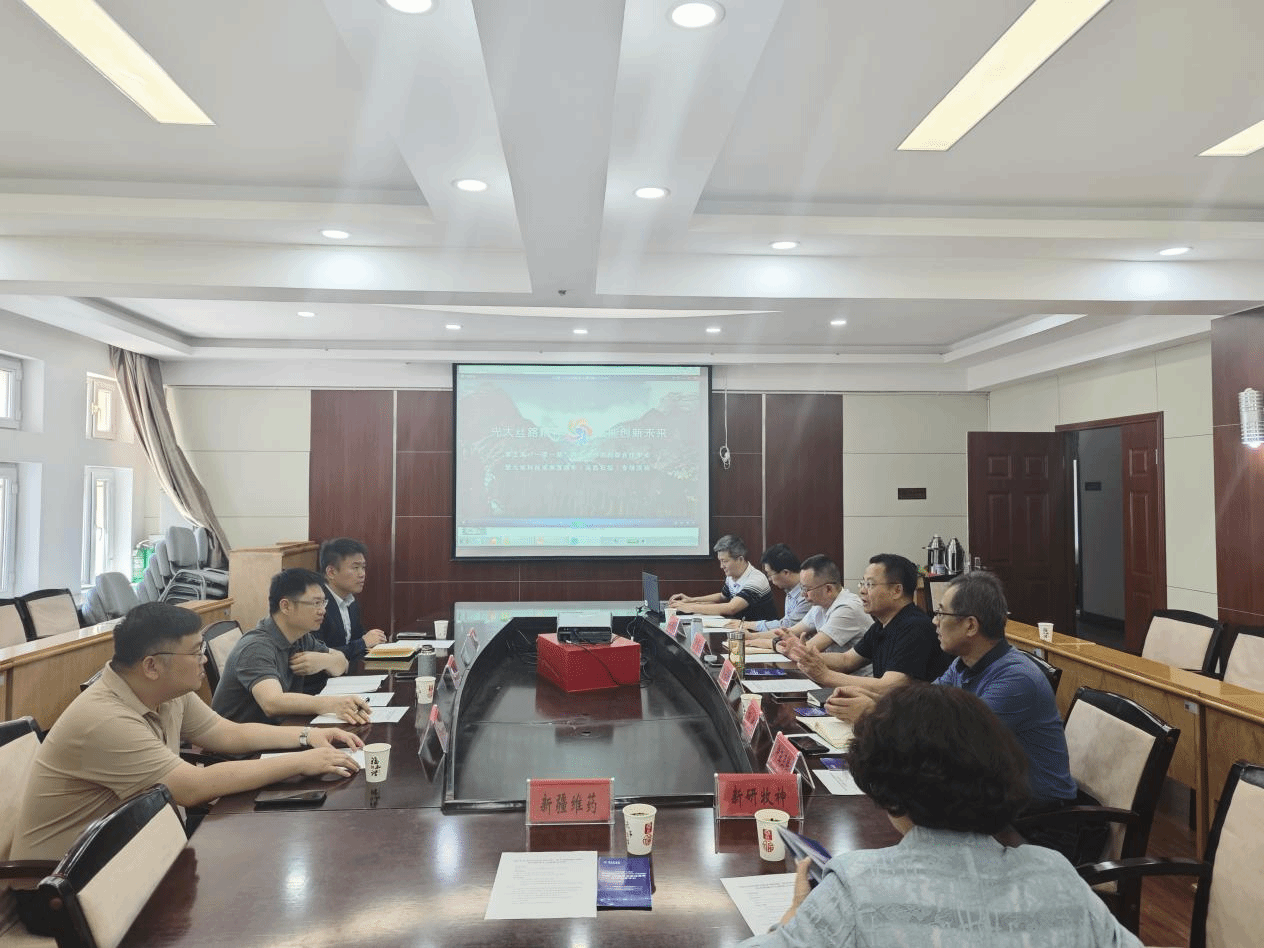On May 15, Chen Baiman, the Executive Director of the China-LAC Technology Transfer Center, led a delegation to pay a visit to the Urumqi Science and Technology Bureau. A symposium was held with Jin Fujiang, the Secretary of the Party Leadership Group of the Urumqi Science and Technology Bureau, Feng Chuanfa, the Deputy Director of the Urumqi Technology Innovation R&D and Technological Achievement Transformation Center, and Chen Gang, the General Manager of Xinjiang China-Central Asia Internet International Incubator Co., Ltd., along with other representatives from enterprises and institutions. This exchange aimed to foster cross-regional scientific and technological collaborative innovation within the framework of the Belt and Road Initiative and to explore novel cooperation pathways between Urumqi and the Guangdong-Hong Kong-Macao Greater Bay Area.
During the conference, representatives from the Urumqi Science and Technology Bureau presented a systematic overview of the local scientific and technological innovation landscape. They placed particular emphasis on analyzing the advantages of characteristic industries such as new metal materials, clean energy, and information technology, and shared the outcomes of international scientific and technological cooperation with Central Asia in recent years. Simultaneously, a list of local industrial technology requirements was compiled, laying a foundation for precise resource matching in the subsequent stages.
Representatives from the China-Central Asia International Technology Transfer Center elaborated on the complementarity and necessity of bilateral cooperation. This included organizing technology roadshow events for promotion, jointly hosting annual science and technology conferences, and assisting Chinese enterprises from Xinjiang and the Guangdong-Hong Kong-Macao Greater Bay Area in expanding into Central Asian and Latin American markets.
Director Chen Baiman comprehensively expounded on the platform construction. This encompassed the network architecture of Latin American technology transfer, the brand event system, and the layout of overseas innovation centers. Director Chen Baiman noted that the experience of the China-Latin America Technology Transfer Center in technology transfer and achievement transformation in fields such as new energy applications and modern agricultural technology promotion aligns closely with the requirements of Urumqi's photovoltaic energy storage and agricultural product processing industries. The two sides can achieve complementary and mutually beneficial outcomes through means such as technology docking and joint research and development.

The two parties reached multiple consensuses on deepening cooperation: Firstly, to establish a "Urumqi - Dongguan" scientific and technological innovation coordination mechanism, facilitating precise alignment of industrial chains through regular reciprocal visits. Secondly, to jointly establish an international technology transfer service platform to promote the interconnection and interoperability of innovation resources between Central Asia and LAC. Thirdly, to concentrate on key sectors such as new materials, new energy, and biomedicine and conduct specialized technology roadshows and technology docking activities.
During the conference, the two sides also deliberated on the feasibility of jointly establishing an international technology transfer alliance, with the intention of promoting industrial transfer through multi-faceted cooperation.
This meeting yielded substantial results, opening up new prospects for scientific and technological innovation cooperation between China-LAC and Central Asia. In the future, the two sides will expedite the implementation of cooperation agreements. By refining the regular docking mechanism, they aim to achieve resource integration and complementary advantages, and strive to construct an interconnected system for technology transfer between Central Asia and Latin America. This will support the "going global" strategy of Chinese enterprises and jointly advance the Belt and Road Initiative's scientific and technological innovation action plan, injecting new impetus into the high-quality development of regional multilateral cooperation.

